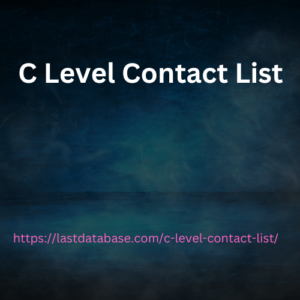Post by j7oyun55rruk on Dec 26, 2023 23:11:25 GMT -5
Think about searcher intent. Word order is important. I had a client ask me if word order made any difference and I gave them the example above. Searcher intent is all about understanding what’s going on in the minds of people who type in specific keywords. What do they want? Why did they enter the words in this order? Once you incorporate this part into your regular keyword research, you'll discover keywords that other websites overlook; providing you with more qualified leads. There are several aspects that I think about.
First, whether a seemingly obvious or meanings. If you're optimizing a Jaguar for a blog about C Level Contact List big cats (thanks for this post!), you'll find yourself running into a ton of competing manufacturers from some sort of Indian (who knew?) car. The next thing I think about is, are my client readers, the people who pay my bills, typing in that keyword to find information? A product? Anything else? If I were running an e-commerce site, I would focus on buying keywords (more on that below). For example, if I were doing SEO for a review site, I would focus on informational keywords. I would look at words like reviews, store, price, comparison, information, specifications, etc.

All the words added to the end of the subject heading indicate what searchers expect to find in their search. Once I get the word list from the keyword tool, I start thinking about the words. I would add these intent suffixes and prefixes to keywords and consider which phrases people would actually be looking for. I will use tools such as Tools to understand what people are actually searching for in relation to the keywords the Keyword Tool gives me and come up with a new and improved list of target keywords.
First, whether a seemingly obvious or meanings. If you're optimizing a Jaguar for a blog about C Level Contact List big cats (thanks for this post!), you'll find yourself running into a ton of competing manufacturers from some sort of Indian (who knew?) car. The next thing I think about is, are my client readers, the people who pay my bills, typing in that keyword to find information? A product? Anything else? If I were running an e-commerce site, I would focus on buying keywords (more on that below). For example, if I were doing SEO for a review site, I would focus on informational keywords. I would look at words like reviews, store, price, comparison, information, specifications, etc.

All the words added to the end of the subject heading indicate what searchers expect to find in their search. Once I get the word list from the keyword tool, I start thinking about the words. I would add these intent suffixes and prefixes to keywords and consider which phrases people would actually be looking for. I will use tools such as Tools to understand what people are actually searching for in relation to the keywords the Keyword Tool gives me and come up with a new and improved list of target keywords.
